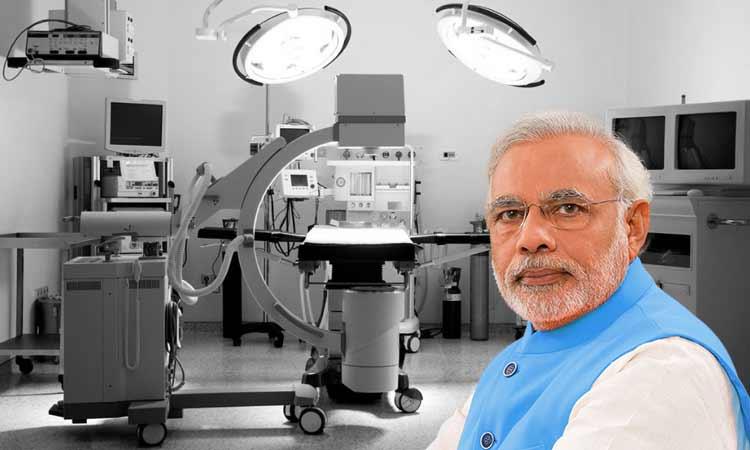US To Keep Mounting Pressure On India To Withdraw Price Caps On Medical Devices

Image Courtesy: Social Post
The United States (US) continues to put pressure on India to do away with price caps on medical devices.
According to the new National Trade Estimate Report of the Office of the US Trade Representative (USTR), it continues to be on the agenda of the USTR to push India to withdraw price controls on coronary stents and knee implants.
Meanwhile, the Assistant US Trade Representative for South and Central Asian Affairs, Mark Linscott, landed in Delhi on 9 April for a two-day visit to meet with senior Ministry of Commerce officials. And one of the issues likely to be discussed is the price control measures on medical devices.
The Office of the USTR is a US government agency responsible for developing and coordinating international trade and investment policy, and overseeing negotiations with other countries.
Before the National Pharmaceutical Pricing Authority (NPPA) capped prices of stents and knee implants in 2017, they used to be prohibitively expensive — inaccessible to the vast majority of people in the country, even as sellers and private hospitals enjoyed huge profit margins.
In February 2017, the National Pharmaceutical Pricing Authority (NPPA) capped prices of coronary stents to reduce prices by as much as 85%. The price of drug-eluting or drug-coated stents — the most commonly used in India — were cut from around Rs 2 lakh to around Rs 30,000. The NPPA found that profit margins of distributors while selling stents to hospitals ranged between 13% and 196%, while the margins of private hospitals while selling to patients were between 11% and 650%. Then in February 2018, the Indian pharma pricing regulator further cut prices of drug-eluting and biodegradable stents from from Rs 30,180 in 2017 to Rs 27,890, excluding GST.
In August 2017, the NPPA capped the prices of knee implants that brought down prices by as much as 69%. The cost of complete knee replacement system made of cobalt chromium, which is also the most widely used, came down from the earlier average maximum retail price of Rs 1.58 lakh to Rs 54,720, excluding goods and services tax (GST). The price of knee replacement systems made of special metals like titanium and oxidized zirconium was capped at Rs 76,600, again 69% lesser than the earlier average MRP.
The move obviously upset companies selling the stents and knee implants — particularly the US pharmaceutical industry. The sales of US stents manufactured by US companies also dipped after the price cap.
The US corporations complain that the price caps are forcing the US to sell products at a loss. In fact, the Advanced Medical Technology Association (AdvaMed) requested the USTR to intervene and to suspend or withdraw benefits given to Indian exporters under the Generalized System of Preferences (GSP), the preferential tariff system of the US.
In October 2017, the USTR had written to Commerce Minister Suresh Prabhu raising concerns over the price caps on stents and knee implants. The USTR has also reached out to the Prime Minister’s Office (PMO). “The pricing policy has created serious problems for the US companies that sell these products in Indian market. The National Pharmaceutical Pricing Authority (NPPA) order on coronary stents does not sufficiently differentiate drug-eluting stents based on the level of technology,” the letter had said.
While the outcome of the visit to India by the Assistant US Trade Representative remains to be seen, the US is likely to further intensify the pressure on India to not control the sky-rocketing prices of medical devices — a pressure that India must resist.
Get the latest reports & analysis with people's perspective on Protests, movements & deep analytical videos, discussions of the current affairs in your Telegram app. Subscribe to NewsClick's Telegram channel & get Real-Time updates on stories, as they get published on our website.























